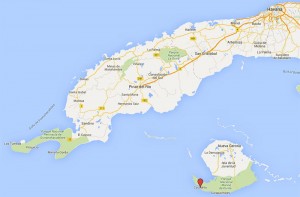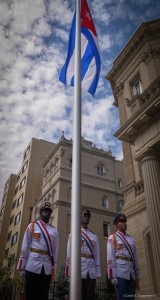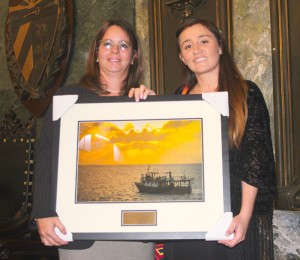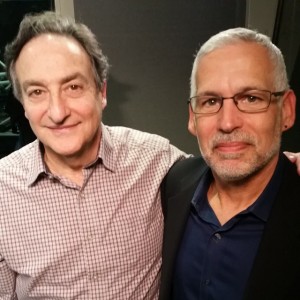Announcing Project “Red Alerta” – Isle of Youth, Cuba
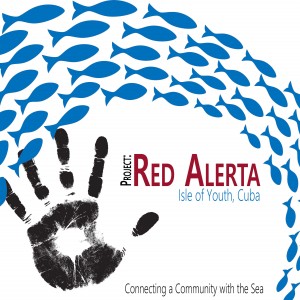 We are pleased to announce Project “Red Alerta,” a unique partnership of Ocean Doctor’s Cuba Conservancy Program and the community of Cocodrilo, a small community on the southern shore of Cuba’s Isle of Youth. Through this project, a coral reef ecosystem monitoring network and education program will be established in the community. Participants will be taught about environmental issues and protection, coral reef ecosystems, their importance and threats, and trained in monitoring methodologies. They will be provided with and trained in the use of snorkeling gear, coral reef identification and health assessment, and how to collect and prepare data for sharing with the scientific community and the public.
We are pleased to announce Project “Red Alerta,” a unique partnership of Ocean Doctor’s Cuba Conservancy Program and the community of Cocodrilo, a small community on the southern shore of Cuba’s Isle of Youth. Through this project, a coral reef ecosystem monitoring network and education program will be established in the community. Participants will be taught about environmental issues and protection, coral reef ecosystems, their importance and threats, and trained in monitoring methodologies. They will be provided with and trained in the use of snorkeling gear, coral reef identification and health assessment, and how to collect and prepare data for sharing with the scientific community and the public.
Cocodrilo has high unemployment and few opportunities. The majority of the jobs in the community remain fishing-related. Project “Red Alerta” can help broaden the community’s opportunities for income. As the community gains familiarity with its coral reef ecosystems and identification of corals and fish, they will be gaining key skills that can be used to educate tourists, allowing the community to develop a strong, sustainable ecotourism operation. Cocodrilo residents are eager to benefit from tourism and the first bed and breakfast (casa particular) was just approved in the community in December 2015.
Over time, the program will help support economic independence for the community and provide strong incentives to protect the adjacent Punta Frances Marine Protected Area (PFMPA). In addition, the program will have important educational linkages to young students in school programs and help foster a growing environmental awareness throughout the community.
[pullquote]The project name, “Red Alerta,” takes advantage of two different meanings of the word “red” in Spanish and English. “Red Alerta” translates as “Alert Network” from Spanish (where “red” means “network”), while in English, “Red Alerta” is close to the term “red alert,” conveying great urgency, appropriate to the dire situation facing Caribbean coral reefs.[/pullquote]
Despite its designation as a protected area, fishing continues illegally within the PFMPA limits, both by commercial fishing cooperatives and by individuals. Unfortunately, the net impact of continued fishing may be threatening the health of the coral reef ecosystem. In August 2015, a scientific workshop led by Ocean Doctor, including Cuban and U.S. scientists, observed a striking lack of large fish (including grouper, snapper and sharks) and some coral reefs experience an overgrowth by macroalgae, a possible symptom of overfishing. Understanding and managing the problem is compounded by a lack of ongoing coral reef monitoring, due to a lack of resources. Project “Red Alerta” can benefit the marine park by providing ongoing monitoring and economic incentives to protect it.
Ultimately, Cocodrilo could serve as a model for other Cuban coastal communities seeking a future that is both environmentally and economically sustainable.

